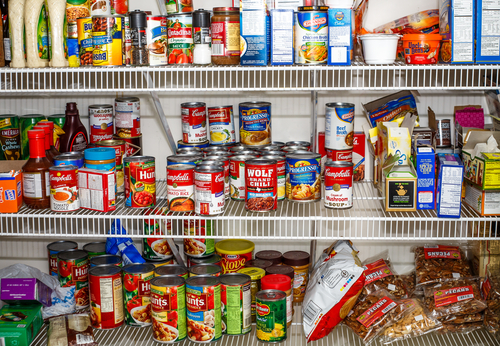43% of law students reported food insecurity worries during pandemic, survey finds

Image from Shutterstock.
Out of 13,000 law students who participated in the annual Law School Survey of Student Engagement, 95% reported the COVID-19 pandemic interfered with their ability to concentrate, 43% had increased concerns about having enough food and 29% feared eviction and housing loss.
The report, released Thursday, is titled The Covid Crisis in Legal Education. Students from 61 law schools were surveyed in the spring of 2021. Out of the survey pool, 87% said managing anxiety interfered with daily functioning, 85% suffered through depression and 69% had an increase in loneliness.
Among respondents who were first-generation college graduates, 21% reported the virus significantly interfered with their ability to pay for law school and living expenses. Comparatively, 11% of students with at least one parent being a college graduate said yes to the same question.
The survey was also parsed out by race regarding respondents’ answers to basic needs questions. Out of Latinx respondents, 45% reported the pandemic significantly interfered with their ability to pay for law school and living expenses, compared to 35% of respondents who are Black, 30% who are Asian American, 29% who are multiracial and 24% who are white.
Regarding food insecurity, 57% of Latinx respondents reported an increased concern about not having enough food, as did 55% of Black respondents. For Asian Americans, 52% said yes to the same question, as did 38% of white respondents and 33% of multiracial respondents.
Many students surveyed did report satisfaction with law school. Out of the respondents, 78% rated their experience as good—compared to 81% in 2020—and 72% said they had positive relations with faculty. Also, 93% said they appreciated that professors showed “care and concerns” for students.
Among the direct comments collected from respondents and shared in the survey, however, the situation seemed bleak for some.
“Stress is incredibly high, motivation is incredibly low,” wrote one respondent. Another asked for more financial assistance and mental health resources, writing “We are exhausted.”
“We try our best, but life over Zoom is pretty agonizing,” wrote another respondent.
Meera Deo, a Southwestern Law School professor who also serves as director of the LSSSE, wrote in the report that she was “shocked” by the survey results, despite doing empirical research on legal education for almost two decades.
“The data have exposed fissures that existed pre-COVID but have been exacerbated due to the pandemic. Now it is up to us to take to heart the data we have collected and analyzed. How can we make real change, the actual improvements that our students desperately need? This is the challenge we face ahead,” she wrote.
At the American Bar Association, the Law Student Division and the Commission on Lawyer Assistance Programs compiled an online tool kit for dealing with substance use and mental health. Also, the organization recognizes Law Student Mental Health Week, which this year ran from Oct. 4 to Oct. 10.
Write a letter to the editor, share a story tip or update, or report an error.


